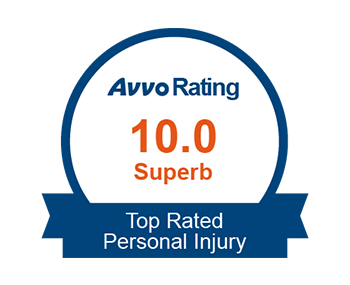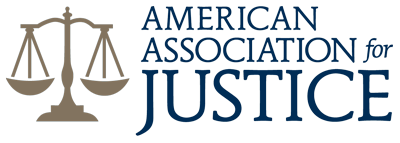Slip and fall accidents are one of the most common types of personal injury claims in New York. Whether they occur on public property, private businesses, or even someone’s home, these incidents can lead to serious injuries, including broken bones, head trauma, and other long-term health complications. When a slip and fall accident happens due to the negligence of a property owner or another responsible party, victims often seek compensation for their injuries. This is where insurance companies come into play. The role of insurance companies in slip and fall accident claims in New York is significant, as they are often the entities responsible for compensating victims for their injuries. Understanding how these companies operate, how they assess claims, and how they approach negotiations is crucial for anyone involved in a slip and fall case.
Understanding the Role of Insurance Companies in Slip and Fall Claims
Insurance companies play a central role in slip and fall accident claims. When an individual is injured on someone else’s property, it is typically the property owner’s liability insurance that comes into focus. Property owners in New York are often required to carry insurance coverage that protects them in case of accidents that happen on their premises. This coverage can vary depending on whether the property is residential, commercial, or governmental, but in most cases, there is some form of insurance in place to address claims arising from slip and fall accidents. The insurance company’s primary role is to assess the validity of the claim, determine the extent of the property owner’s liability, and decide on the appropriate amount of compensation for the injured party.
However, insurance companies are not in the business of paying out large sums of money without thorough investigation. Their primary goal is to minimize payouts and protect their bottom line. As a result, they will conduct extensive investigations into the circumstances surrounding the slip and fall accident. This can include reviewing incident reports, examining security footage if available, interviewing witnesses, and scrutinizing the injured party’s medical records. The insurance company will try to determine whether the property owner was negligent and if the injured party contributed to the accident in any way. This process can be lengthy, and claimants must be prepared for potential delays and resistance from the insurance company.
Common Tactics Used by Insurance Companies to Minimize Payouts
Insurance companies are known to use various tactics to reduce the amount of compensation they have to pay to slip and fall accident victims. One common strategy is to dispute liability. The insurance adjuster may argue that the property owner was not at fault or that the dangerous condition that caused the accident was either temporary or too insignificant to hold the owner responsible. For example, if a spill on the floor caused the fall, the insurance company might argue that the property owner did not have enough time to notice and clean it up before the accident occurred. By disputing liability, the insurance company can reduce or completely deny the claim.
Another tactic used by insurance companies is to question the severity of the victim’s injuries. Insurance adjusters may request detailed medical records and consult their own medical professionals to argue that the injuries sustained in the accident are not as severe as the victim claims. They might also suggest that the injuries were pre-existing or caused by something other than the slip and fall accident. This tactic can be especially frustrating for victims who are dealing with significant medical expenses and long-term recovery.
Insurance companies also frequently offer quick, lowball settlement offers to slip and fall accident victims. These offers may seem attractive, especially to individuals who are struggling with mounting medical bills and lost wages. However, these initial offers are often far lower than what the victim is entitled to, and accepting them can prevent the victim from pursuing additional compensation later on. Victims should be wary of accepting any settlement offer without first consulting with a personal injury attorney who can assess the true value of their claim.
The team is very personable, patient and empathetic with their clients. They are upfront with you and will explain the entire process with you, they never lead you to believe otherwise, they tell you like it is and will not sell you a million dollar dream. Trust in Andrews, Bernstein & Maranto, PLLC, they work for you and he looks out for your best interest.” - Jane D.
How Insurance Companies Determine the Value of a Slip and Fall Claim
When determining the value of a slip and fall claim, insurance companies consider several factors. First, they will assess the severity of the injuries sustained in the accident. Serious injuries such as broken bones, head injuries, or injuries requiring surgery and long-term medical care will result in higher compensation amounts. The insurance company will review medical records, bills, and documentation from healthcare providers to determine the extent of the injuries and the associated costs.
In addition to medical expenses, insurance companies will also consider other damages, such as lost wages and the impact on the victim’s ability to work in the future. If the injuries prevent the victim from returning to work or require them to take time off to recover, the insurance company will calculate the lost income and factor it into the settlement offer. Pain and suffering, which accounts for the physical pain and emotional distress caused by the accident, may also be included in the compensation amount, although insurance companies often downplay this aspect of a claim.
Insurance companies will also assess the strength of the evidence supporting the claim. If the victim has clear and convincing evidence that the property owner was negligent, the insurance company may be more likely to offer a higher settlement. However, if the evidence is weak or if there is any question of shared responsibility between the property owner and the victim, the insurance company may attempt to reduce the payout. Comparative negligence, which is the legal principle that reduces compensation based on the victim’s own contribution to the accident, is commonly invoked by insurance companies to lower the value of a claim.
Should I Take The First Settlement Offer? Steps to File a Personal Injury ClaimRelated Videos
Negotiating with Insurance Companies After a Slip and Fall Accident
Negotiating with an insurance company after a slip and fall accident can be challenging, especially for individuals who are unfamiliar with the process. Insurance adjusters are skilled negotiators who are trained to protect the company’s interests, which often means offering as little compensation as possible. Victims who attempt to negotiate on their own may find themselves overwhelmed by the process and unsure of how to counter the tactics used by the insurance company.
One of the most important steps in negotiating with an insurance company is to be well-prepared. This means gathering all relevant documentation, including medical records, incident reports, witness statements, and any other evidence that supports the claim. Being able to clearly demonstrate the extent of the injuries and the property owner’s negligence is essential in negotiations.
It’s also important to be patient during the negotiation process. Insurance companies may deliberately drag out the process in the hopes that the victim will accept a lower settlement out of frustration or financial desperation. Victims should not feel pressured to accept the first offer they receive, especially if it is significantly lower than what they are entitled to. In many cases, hiring a personal injury attorney can help level the playing field and ensure that the victim receives fair compensation for their injuries.
Verdicts & Settlements
The Benefits of Hiring a Personal Injury Attorney for Slip and Fall Claims
Hiring a personal injury attorney can make a significant difference in the outcome of a slip and fall claim. An attorney who is experienced in handling these types of cases understands the tactics used by insurance companies and can effectively counter them during negotiations. Attorneys can also help gather and present evidence to support the claim, negotiate with the insurance adjuster on behalf of the victim, and ensure that the victim receives the maximum compensation available under the law.
One of the key benefits of having an attorney is that they can provide an accurate assessment of the claim’s value. Insurance companies are often willing to settle claims quickly, but their offers are frequently much lower than what the victim deserves. An attorney can evaluate the full extent of the damages, including medical expenses, lost wages, pain and suffering, and future care needs, to determine what a fair settlement would look like. If the insurance company refuses to offer an adequate settlement, an attorney can take the case to court and fight for the victim’s rights before a judge and jury.
Additionally, personal injury attorneys are familiar with the complexities of New York’s legal system and the specific laws governing premises liability cases. They can navigate the legal hurdles that may arise in slip and fall claims, such as issues related to comparative negligence or proving the property owner’s responsibility. By having a skilled attorney on their side, victims can increase their chances of securing a favorable outcome in their case.
If you or a loved one has been injured in a slip and fall accident in New York, it is essential to understand your rights and the role that insurance companies play in the claims process. Dealing with an insurance company can be overwhelming, especially when you are recovering from a serious injury. Andrews, Bernstein & Maranto, PLLC is here to help you navigate the complexities of your case and ensure that you receive the compensation you deserve. Contact us today for a consultation, and let our team fight for your rights.












